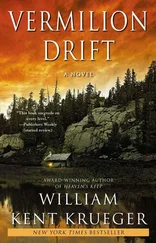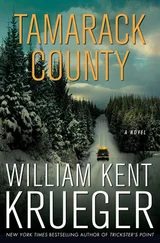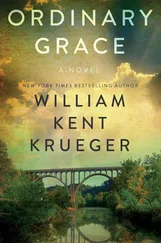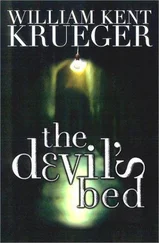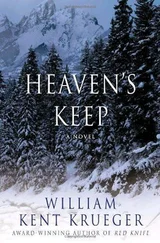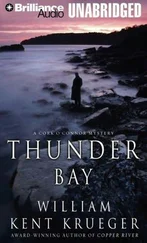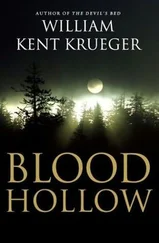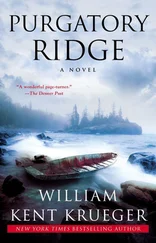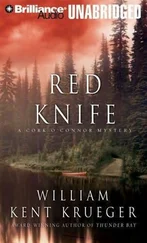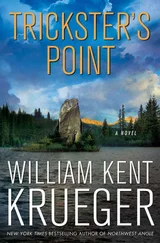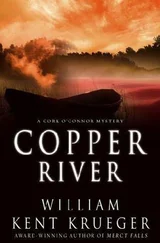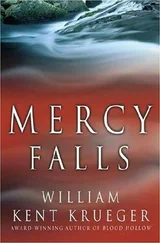“Surely a fifty-caliber machine gun in the hands of a civilian wasn’t our founding fathers’ intent,” Rose shot back.
“Ma’am, with all due respect, there’s a lot of case law says otherwise.”
Cork broke in on an argument he knew was pointless at the moment. “Tom’s right. We can’t approach a judge with what we have, but I’d sure like another opportunity to talk with the faithful of the Seven Trumpets. See what I might be able to shake loose.”
“How about in daylight this time,” Kretsch suggested. “First thing in the morning?”
“That’ll do,” Cork said. “I don’t know about you guys, but I’m bushed.”
“You’ll be able to sleep?” Anne asked, nodding toward the coffee mug that Cork cradled.
“Sweetheart, a stampede of wild horses couldn’t keep me awake.”
“We ought to keep somebody on guard,” Bascombe suggested. “In case Smalldog comes sniffing around again. Maybe switch off at hour intervals. I’ll be happy to take first watch.”
“And I’ll take second,” Mal said.
“I’ll relieve you,” Kretsch volunteered.
“Then I’ll stand the last watch,” Cork said, “which should take us to dawn.”
“I’ll give a hand in any way I can,” Rose offered. “But I won’t carry a firearm.”
“Same here,” Anne chimed in.
“How about you fix us a hearty breakfast in the morning,” Mal suggested. “And keep the bed warm for me.”
Anne said, with a note of disparagement, “Women’s work.”
Rose put her hand on her niece’s arm and smiled. “We asked.”
Despite what he’d told Anne, Cork couldn’t sleep. It wasn’t the caffeine. He just couldn’t get his brain to shut down. He went over the events of the last couple of days in his head again and again, and no matter how he juggled things, nothing made sense. He couldn’t wrap his thinking around a man like Smalldog, a man who may well have abused and then tortured and killed his own sister. A man who hated white people yet smuggled arms to a group of white religious zealots. A man who’d been raised by a father whom the Ojibwe of Windigo Island admired but had, nonetheless, turned into hate on two legs. What caused a man’s soul to be so misshapen? He wished Henry Meloux were there so he could ask his old friend that very question. If anyone could understand Noah Smalldog, it would be Meloux. And if anyone could tell Cork what he ought to be doing about Smalldog, that was also Meloux. But Henry was in his cabin on Crow Point, which was a good thing, because Jenny and Stephen and the baby were there with him, and as long as that was the case, Cork knew they were safe.
He finally got up from his bunk and pulled on his clothes and walked outside. It was Mal’s turn on watch, and Cork spotted his brother-in-law sitting on the bench at the end of Bascombe’s dock. Mal wasn’t alone. Rose was with him, her head laid against his shoulder. In the quiet that had come that night with the end of the wind, he could hear them talking, though so softly that he couldn’t make out words. It was a scene of intimacy, of two people whose separate lives were braided together into a single strand. Cork was happy for them. And at the same time, the sight of them made him feel empty and alone. He stood in the shadow of the cabin cast by the moon and let himself, as he sometimes did, remember his wife fully. He could see her face, which had been beautiful, her eyes, which had been deep blue and sharp with intelligence, her hair the color of corn silk. He could hear her voice murmuring his name in the way she’d sometimes done after they made love, which had been like the whisper of a secret. And he felt her body shaped perfectly to his, as it had often been when he held her in the cool quiet after the heat of their passion.
The truth, he knew in his rational thinking, was that his marriage had not always been so perfect, but at that moment it didn’t matter. What mattered was that he was happy for Mal and Rose, and that he hoped, if Jenny and Aaron chose to work things out, they would find a way to braid their two lives together with love, and that, although he was himself alone now and lonely, he hadn’t always been.
He turned and went back into his cabin and lay down thinking that if he, a man who’d known great love, felt lonely, what must a man like Noah Smalldog feel? Was there any limit to how alone a human being could be?
FORTY-ONE
The child woke at first light. Jenny lifted him from the bedding inside the ice chest that had cradled him all night and walked away from where Aaron and Stephen still lay in their sleeping bags, dead to the world. From the stovepipe atop Meloux’s cabin, smoke rose white against the faint blue of the dawn sky, and Jenny could smell biscuits baking. She saw light through an open window, heard the whisper of quiet conversation inside, and thought about joining Rainy and Henry, who were clearly awake. For a little while, however, she wanted to be alone with Waaboo.
There was a path that led away from the cabin, across the meadow, and through an outcropping of tall rocks. On the other side was a fire ring full of the ash of many fires and surrounded by sections of tree trunk cut to serve as stools. Jenny had been there on many occasions with her father and Stephen, while Henry Meloux fed sage and cedar to the fire in the ring. It was a place sacred to the old Mide. She sat on one of the makeshift stools, and stared at the water of Iron Lake not more than a dozen feet away, smooth and gray as smoked glass. Somewhere on the lake a loon cried and another answered.
“Waaboozoons,” she said aloud. She brushed his fine black hair with her fingertips and stared down into his dark eyes, which stared right back at her. “What are you thinking, Little Rabbit?”
“Not much,” came the reply, but it didn’t come from Little Rabbit. It was Henry Meloux who’d spoken.
Jenny looked up as the old man walked slowly toward her from the opening in the rocks. He wore overalls and a long-sleeved flannel shirt, though the day was warm already and promised to be hot. He wore no hat, and his long white hair hung down and framed his face, which was like sandstone fractured by time and the elements. His old dog, Walleye, came with him, padding softly at his heels. Meloux seated himself on a sawed section of tree trunk next to Jenny. Waaboo’s eyes swung toward him briefly, then back to Jenny’s face.
“He does not think,” Meloux said. “He only feels. And what he feels is comfort and love. What every child should feel, but some do not. This one is lucky.”
“His mother was killed, Henry. How lucky is that?”
“But he is alive. And he found you, and you found him.”
Walleye had taken an interest in the child. He put his wet, black nose near Waaboo and sniffed, and his tail thumped the ground. Then he walked in a circle twice and lay down near Meloux.
The old Mide watched the baby in Jenny’s arms, his eyes warm with affection. “I don’t claim to understand the Great Mystery that is Kitchimanidoo, but I believe that nothing happens without purpose. This child has been given to you for a reason.”
“He’s not mine, Henry. I’m sure the authorities will find someone else they’ll say he belongs to.”
“Belongs.” Meloux seemed to consider the word. “I believe no one belongs to anyone else. You, me, Waaboozoons, we are all dust borrowed for a little while from Grandmother Earth. And even that dust does not belong to her. She has borrowed it from all creation, which is the Great Mystery, which is Kitchimanidoo. And if you ask this old man, I would say that another way to think about Kitchimanidoo is as a great gift. Kitchimanidoo is not about keeping. Nothing belongs to anyone. All of creation is meant as a giving.”
Читать дальше

